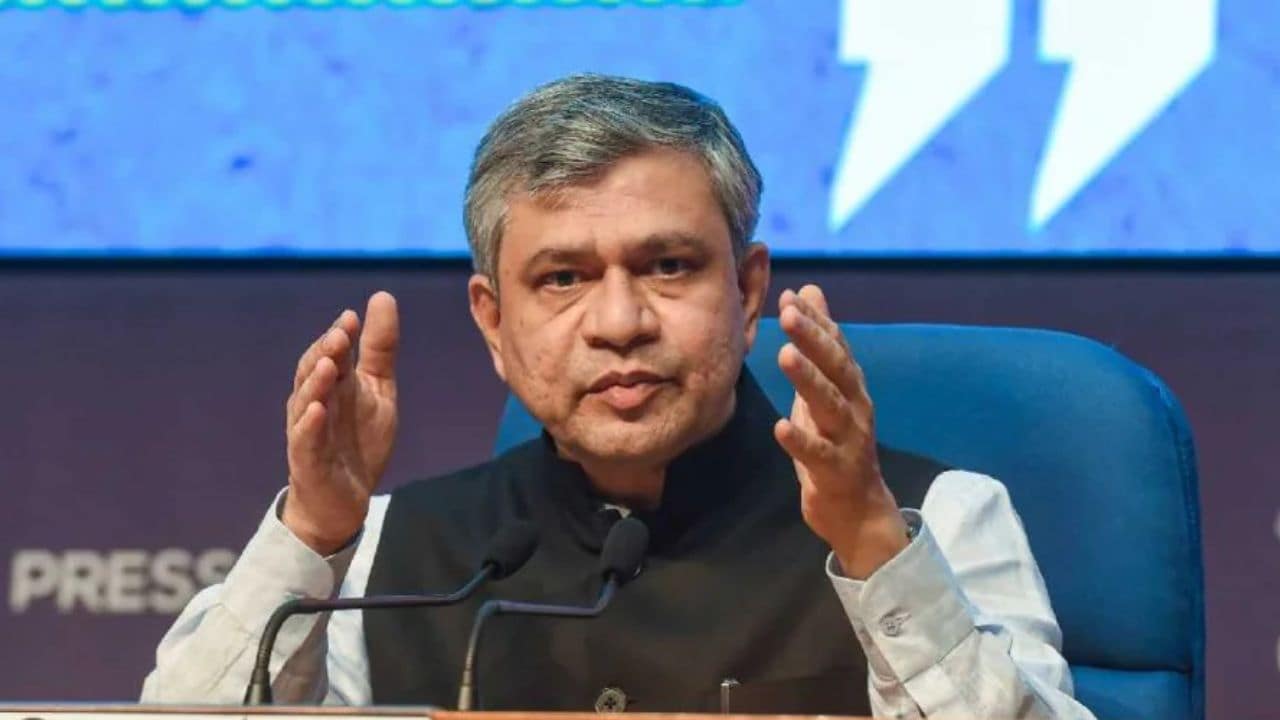The Union Minister of Information and Broadcasting, speaking at an event organized by the Press Council of India, expressed concerns about fake news, algorithmic bias, artificial intelligence, and the need for fair compensation from Big Tech companies. Ashwini Vaishnaw also suggested reconsidering the ‘Safe Harbor’ provision, which shields social media intermediaries.
Vaishnaw highlighted that platforms fail to verify the accuracy of the information shared online, leading to a flood of “false and misleading information.” He urged online platforms and Big Tech to take a more active role in combating misinformation and safeguarding democracy.
“The rapid spread of fake news is a big threat not only to the media because it undermines trust but it’s also a big threat to democracy,” he said.
Vaishnaw proposed re-evaluating the ‘Safe Harbor’ provision, which shields social media companies like Meta, X, and Telegram from being held liable for user-generated content. He argued that the provision, designed in the 1990s, may be outdated considering the vast influence of digital platforms today.
“With our diverse society, we have to be extra careful. Our country has many sensitivities which do not exist in the countries where these platforms originate. Therefore, if the circumstances are different, shouldn’t there be different metrics for the platforms? Shouldn’t there be more responsibility on the platforms?” he questioned.
Currently, Section 79 of the Information Technology Act, 2000, grants big tech platforms immunity from legal action over user-posted content. Removing or modifying the ‘Safe Harbor’ clause would hold these platforms directly accountable for such content, eliminating their legal protection.
Vaishnaw cautioned that the algorithms used by digital platforms often prioritize engagement by promoting sensational or divisive content. This trend, he claimed, poses significant risks to society and requires solutions that balance engagement with ethical practices.
“In a country as diverse as India, misinformation and such algorithmic bias can have serious social consequences, as we’ve witnessed in several instances. This approach, in my opinion, is irresponsible and dangerous for our society,” he stated.
As news consumption increasingly shifts to digital platforms, traditional media outlets are facing financial challenges, Vaishnaw noted. He called for fair compensation to bridge the economic gap between traditional and digital media.
“The efforts made by conventional media in creating content need to be fairly and suitably compensated,” he said.
On the topic of artificial intelligence, Vaishnaw raised concerns about its ethical and economic impacts, particularly regarding AI-generated content.
“AI models today can generate creative content based on vast datasets they are trained on. But what happens to the rights and recognition of the original creators who contributed to that data? Are they being compensated or acknowledged for their work? This is not just an economic issue; it is an ethical one too,” he remarked.
He urged all stakeholders to set aside political differences and engage in open discussions and collaborative efforts to address these pressing challenges.
